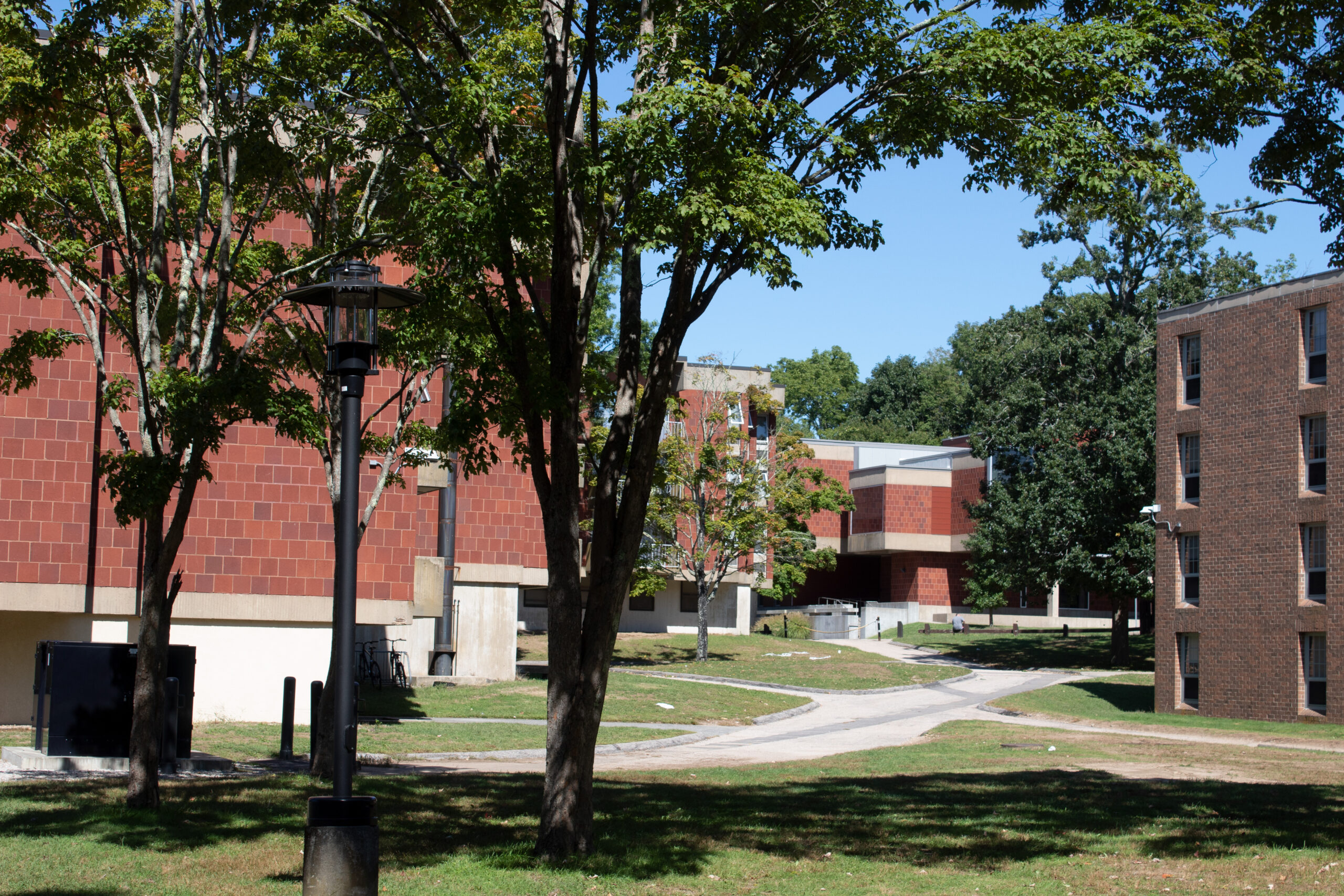Triples, new residence hall possible in future
With growing numbers of students, the URI community finds it harder and harder to find housing. PHOTO CREDIT: Hannah Charron | Staff Photographer
With a growing number of students attending the University of Rhode Island and a spike in students wanting to live on campus, URI has been in the midst of a housing crisis.
This is due to multiple factors, including the growing URI student population, a greater number of students living on campus in the wake of the COVID-19 pandemic and the recent decrease in the number of rentals available to students locally, due in part to a housing ordinance passed in Narragansett.
The ordinance, as of last spring, restricts rentals to allow no more than three unrelated undergraduate students to reside together. This ordinance has since been put on legal hold until a judge reviews it. This ordinance has not only affected the supply of housing, but also increased the price of renting off campus.
Additionally, houses in Narragansett and other towns in the vicinity are selling for more than the asking price due to the current market, with individuals selling and buying property at a much higher value than initial estimates. As a result, the number of rentals available for students in the community is less than before.
Several members of the URI community are a part of creating plans for the University moving forward, including Ellen Reynolds, the interim vice president of student affairs.
According to Reynolds, a main contributing factor to the cause of this housing shortage was the record number of students applying to the University.
“We have had a record number of admissions to the University of Rhode Island, 25,000 plus,” Reynolds said. “We also had a record number of students who wanted to live on campus. And so yes, we had a very robust response to our application process for housing, and it far exceeded what we had available for students on campus.”
This past fall, an alternative option offered to incoming students was created — the possibility to live in a double with three students. Although it is unclear how many students utilized this living arrangement in order to receive a discount on housing fees, Reynolds said that triples may be a mandatory option pursued next year as a short-term solution to increasing the number of beds available for students on campus.
“We’re looking at where we can safely do it and where our halls allow for it to be done well looking at triples again and offering a significant discount to individuals who are willing to triple up, and previously that’s been done with just our first-year students,” Reynolds said. “But we’re potentially looking at doing this with other students as well, maybe some sophomores.”
According to Frankie Minor, director of URI’s Housing and Residential Life (HRL), many students did not anticipate the housing waitlist and viewed on-campus housing as a “safety net” for their 2022-23 living situation.
“We saw that we had students who used on-campus housing as a ‘safety net,’” Minor said. “We started mentioning options right off the bat because convenience and proximity seemed important.”
For the nearly 800 students initially on the housing waitlist, Minor said a variety of alternative options were offered.
He also said that the number of housing options available for students was sufficient, given the situation.
“There were multiple forms of alternative housing offered to students on the waitlist,” Minor said. “Including the option to board at sorority and fraternity houses looking to rent available beds. Some rooms were available at the [International Engineering Program house] and tenant houses, as well as reserved rooms available for students at the Holiday Inn located in South Kingston.”
Minor said that URI has tentative plans for new dorms and buildings in the long term to alleviate stress and overcrowding.
In the meantime, students unable to find housing on the waitlist will continue to be given some alternatives. According to Minor, who has worked at other higher-education institutions in the past, this problem is not unique to just URI.
As for a permanent change, the definitive answers to long-term or short-term problems remain to be seen.





